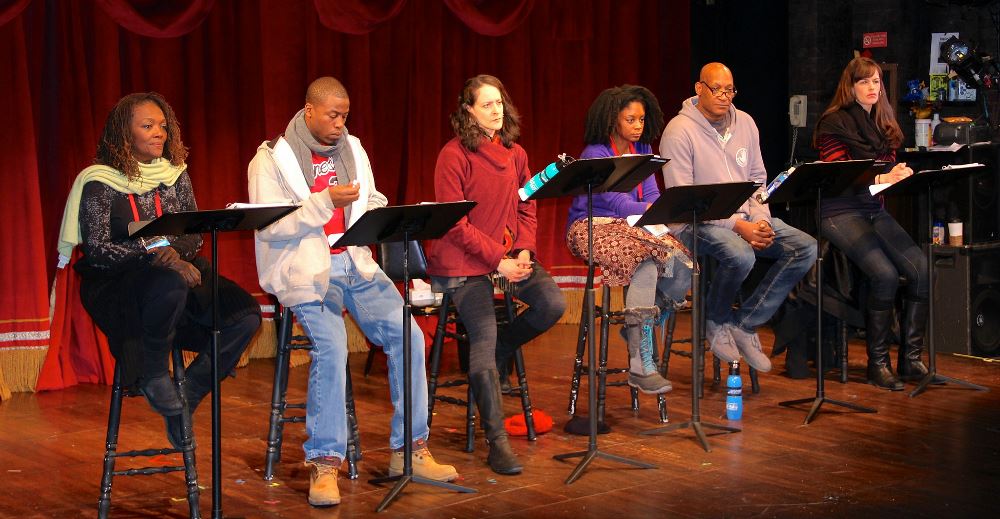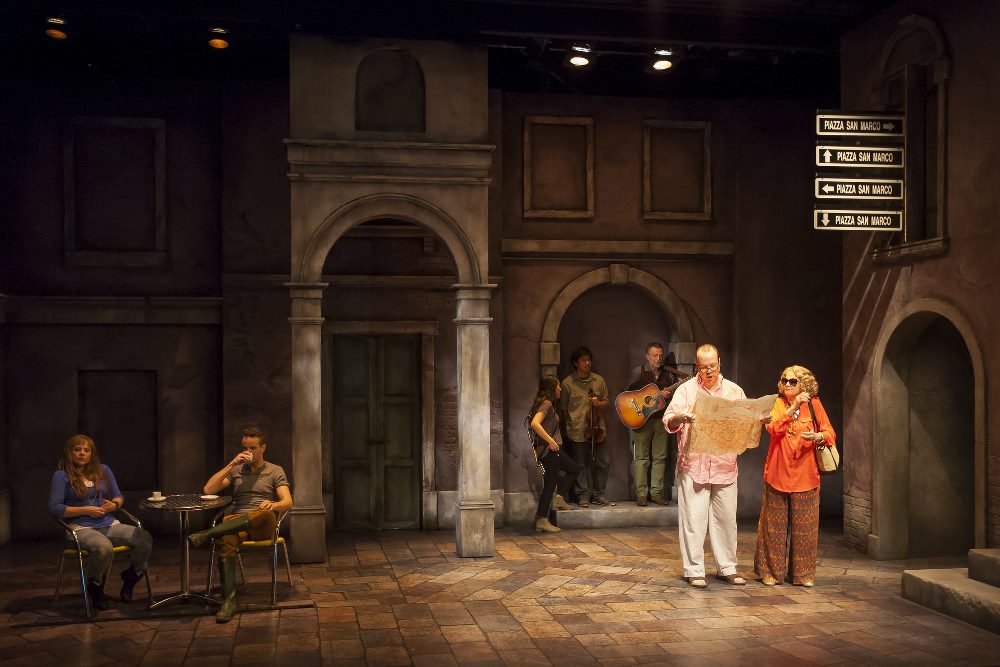DENVER: When in Denver, it’s best to drink lots of water. At least that’s what playwright Theresa Rebeck discovered. “It’s so high up,” she says by phone. “You forget that.” Luckily, the staff at Denver Center Theatre Company know how to take care of their guests. “They give you water bottles so you don’t forget,” Rebeck adds.
When one thinks of new play festivals, Denver may not be the first name that comes to mind; it’s probably Humana or various fringe festivals. But in the past decade, the Mile High City has become an undersung gem of new play development. This year, in fact, marks the 10th annual Colorado New Play Summit, hosted by the Denver Center Theatre Company, a department of the Denver Center for the Performing Arts. “I wish people knew about it!” exclaims Rebeck, whose new play The Crown will be read there starting this weekend.
The summit was the brainchild of DCTC producing artistic director Kent Thompson. “When I arrived I said, My first priority is to reinvent [Denver Center’s] new play program, and that’s basically going to take a half a million dollars,” he recalls. “I’ve been in this enough to know that you have a honeymoon period, so you better ask for what you want.”
The gambit proved fruitful, as the DCPA board of trustees came up with that initial sum. And that’s not the only new-play action in Denver: In addition to the summit, DCTC now produces an average of three world premieres every season.
New plays have long been a passion for Thompson. Before coming to DCTC, he was the artistic director at Alabama Shakespeare Festival, where he launched the annual Southern Writers Project, a new play festival focused on playwrights south of the Mason-Dixon line.
Since its inception, the Colorado summit has expanded from a local event for Denver theatregoers to an industry must-attend fest. And in honor of its anniversary (and popular demand), the summit will now last two weekends (Feb. 14–15 and Feb. 21–22), instead of the customary one. The weekend events include four play readings and two fully produced world premieres.
The summit has presented 25 world premieres, most notably Samuel D. Hunter’s The Whale, read in 2011 at the summit, then mounted as a world premiere at Denver Center in 2012. It then went on to a critically acclaimed production at Playwrights Horizons in New York City and at various theatres nationwide (and was published in American Theatre in February 2013).
When asked if he can take credit for Hunter’s success, Thompson laughs and says, “I wish I could! What I do take credit for was that he had had several readings of The Whale at several prominent theatres in New York and elsewhere and nobody committed.” It was DCTC who gave the first production to Hunter’s script, which featured a 600-pound character.
This year, in addition to Rebeck’s Crown, the readings include The There There by Jason Gray Platt, Fade by Tanya Saracho and Holy Laughter by Catherine Trieschmann. The world premiere productions will be Appoggiatura by James Still and Benediction by Eric Schmiedl. Both plays first appeared at last year’s summit.
For Still, one of the aspects that sets the summit apart from other new-play festivals is the avid theatregoing culture of Denver, where audiences are willing to invest in “a play with a title that no one can pronounce, no one knows what it means [and] by a writer they’ve never heard of,” he says, referring to his play (an appoggiatura is a musical embellishment, a kind of extra note before a main melody note). “The fact that the play’s advanced ticket sales was very high, it had to be because of the summit.”
Still considers post-reading question-and-answer sessions with the audience “my idea of hell,” and the fact that he doesn’t have to do that at the summit is a huge plus as well. “They don’t have an oral feedback session after the reading, they have a written one. The writer can choose to read them or not,” he explains. “That’s the hallmark of Denver: listening to writers and offering what the writer thinks is best for the process.”

This year, three of the plays are by female playwrights. They were commissioned as part of the Women’s Voices Fund, an endowment that encourages the theatre to commission female playwrights and hire female artists. The fund was established in 2005 by Thompson and 99 other members, in response to the fact that out of 263 productions mounted at DCTC to that date, less than a dozen had been written by women.
“You don’t want to just commission a play, what you want to do is really take women writers and carry them—give them the support they need to get a play to the finished line and to really see it on its feet, then do that again,” says Rebeck, whose play Our House was commissioned and produced by DCTC in 2008. “And that’s what Kent does.”
Thompson also actively looks for works by playwrights of color. Other plays that had their first life at the summit include The Legend of Georgia McBride by Matthew Lopez, Octavio Solis’s Lydia and Marcus Gardley’s black odyssey.
“I want to pick the best play, but I also have other objectives in a season,” he says. “My fundamental responsibility is to reflect where the theatre is, and that means reflecting the various cultures that live here. The Latino issue was just incredibly important to me because it’s 25 percent of the population of Colorado, and they’ve been here for multiple generations.”
Yet it’s not just world premieres that Thompson has his eye on. To ensure that a play lives on beyond its first production, Thompson and associate artistic director/director of new-play development Bruce Sevy provide matchmaking services post-festival, promoting summit plays to theatres nationwide.
“I think we fail if we don’t have follow-on productions” says Thompson. “I know that some plays are 90 percent ready when they have their first production, but in general, for a playwright, when they have their third, fourth and fifth production, they’ve kind of started to see the play again from an objective distance.”
Most recently, Lopez’s The Legend of Georgia McBride, produced last season at DCTC after a summit tryout, announced that its second production would be at New York City’s MCC Theater. For Thompson, the fact that plays from the summit have gone on to have future lives is an indication of the festival’s increasingly solid reputation, both locally and nationally. “That’s really exciting. To me that’s one of the gifts that we can make to American theatre.”


